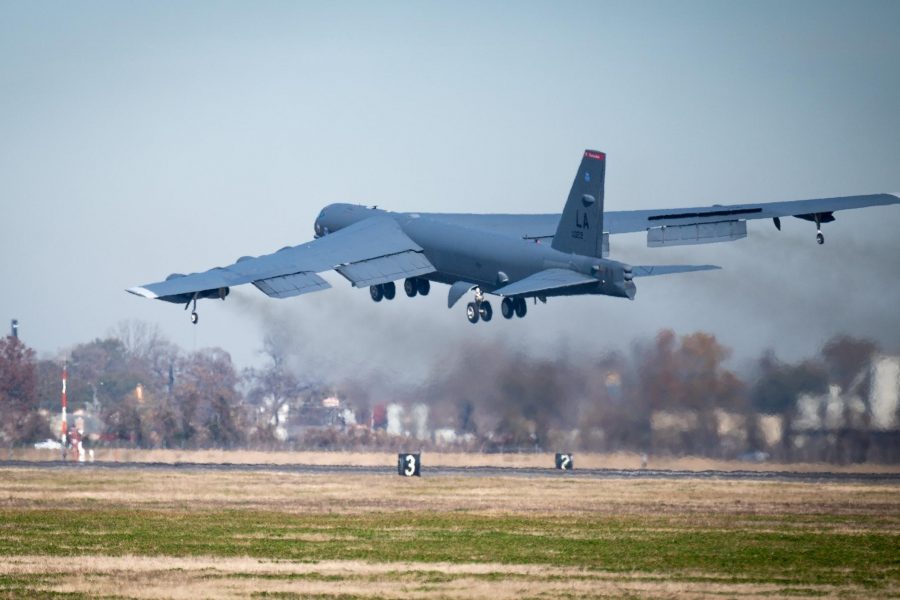As the new administration and Congress prepare to take a critical look at the nuclear triad and overall need for nuclear modernization, the head of U.S. Strategic Command warned lawmakers that a reduction in the overall force could mean a return to Cold War norms.
During testimony to the Senate Armed Services Committee, Adm. Charles A. Richard said that while he welcomes a review of the nuclear posture, cutting the intercontinental ballistic missile force and shifting to a “dyad” approach would require the military to completely reshape operations.
“What is not often recognized is that we don’t have a triad day-to-day, right. The bombers are not available to us,” Richard said. “We chose to take them off alert as a type of peace dividend after the Cold War, so day-to-day all you have is basically a dyad. Basic design criteria in the triad is that you cannot allow a failure of any one leg of the triad to prevent you from being able to do everything the President has ordered you to do.
“If you don’t have intercontinental ballistic missiles, we can’t meet that criteria. You are completely dependent on the submarine leg, and I’ve already told the Secretary of Defense that under those conditions I would request to re-alert the bombers.”
Some on Capitol Hill have questioned the need for the Air Force’s Ground-Based Strategic Deterrent—the replacement of the aging Minuteman III ICBM and its infrastructure. During the hearing, several lawmakers asked Richard directly to defend the need for this modernization in advance of budget deliberations.
There is “no operational margin” left in the ICBM leg of the triad, Richard said, since all of it was depleted as the nation delayed modernization. The current ICBM force is “at risk of losing credibility” in the eyes of potential adversaries, and even at risk of “not working at all” against a pacing threat.
“We could reach a point where no amount of money” would mitigate that risk, Richard said.
“Nothing lasts forever,” Richard said. “You cannot indefinitely life-extend anything. I cannot deter with the leftovers of the Cold War forever. … I need a weapons system that will actually work and actually make it to the target.”
Richard offered the example of the current Minuteman III alert station. Across the Air Force’s alert sites, the service is down to two remaining switches that are required in the station. No companies are manufacturing the switch, and it isn’t feasible for a company to start making them, so maintainers have been “pulling rabbits out of hats” to work through these types of issues.
At the same time, China has been working to build its nuclear stockpile and modernize. “In the very near term, China will possess a capable triad,” he said.
“My best military advice is to offer caution, observe their actions, which speak louder than words, take steps to credibly deter armed conflict, and reject Chinese policies or actions that threaten the international rules-based order or undermine regional and global stability,” Richard wrote in prepared testimony. “We must remain postured to counter Chinese coercion and subversion, assure our regional allies and partners, and protect our national security interests as international law allows.”
